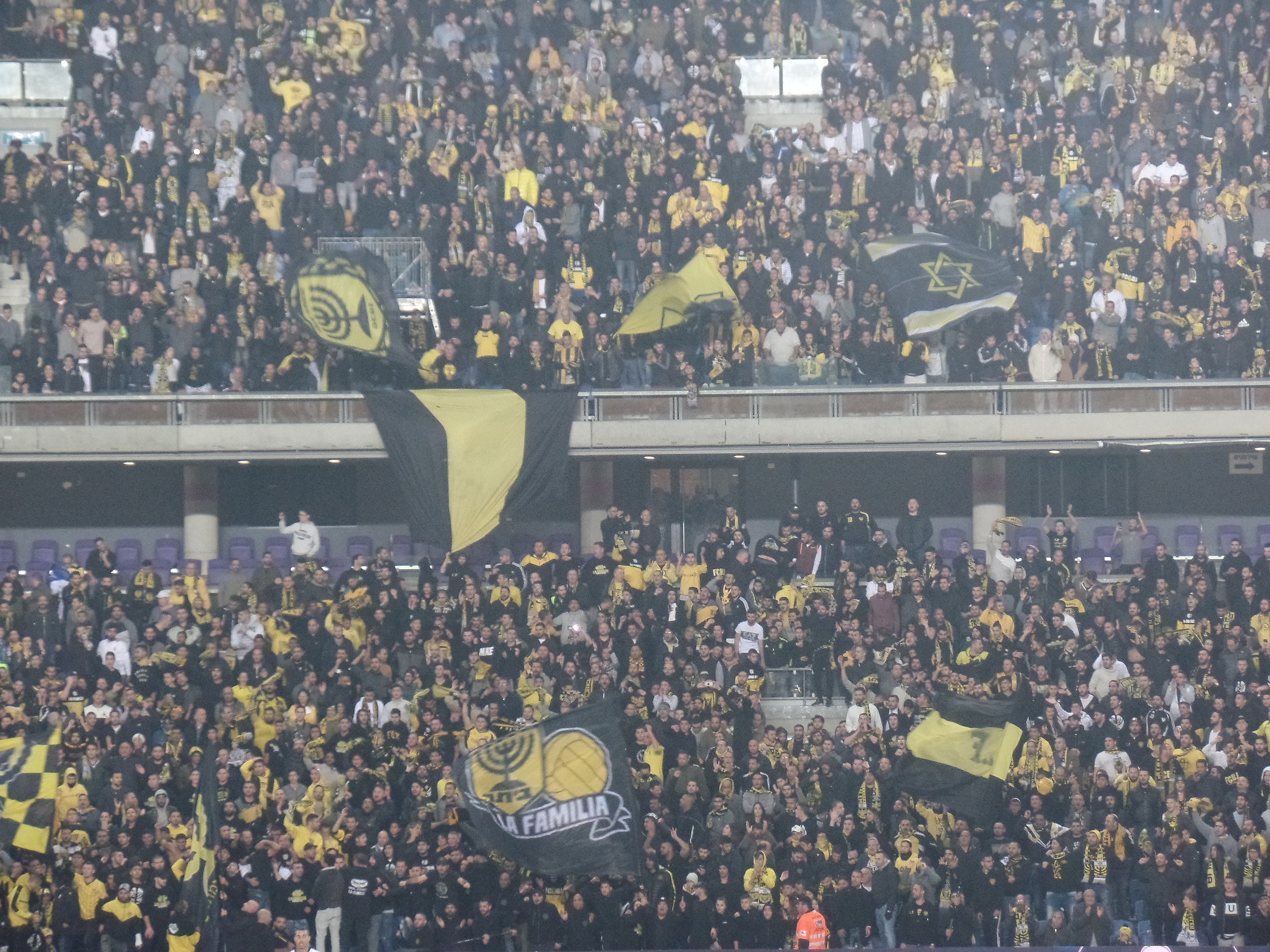by James M. Dorsey
The contrast could not be starker. As Israel plays a dangerous game of US politics by restricting or banning visits by controversial Democratic members of Congress to seemingly please President Donald J. Trump’s prejudiced electoral instincts, the owner of a notorious Jerusalem soccer club draws a line in the sand in confronting his racist fan base.
The contrast takes on added significance as prime minister Benyamin Netanyahu woes Israel’s far-right in advance of elections on September 17 given that storied club Beitar Jerusalem has long been seen as a stronghold for his Likud party.
Mr. Netanyahu’s barring of Congresswomen Rashida Tlaib and Ilhan Omar was as much a response to Mr. Trump’s tweeted suggestion that they should not be allowed to visit Israel as it was catering to his right-wing base that includes Beitar’s fans.
Beitar is the only Israeli squad to have never hired a Palestinian player. Its fans, famous for their racist slogans and bullying tactics, have made life impossible for the few Muslim players that the club contracted in its history.
Messrs. Netanyahu and Moshe Hogeg, the Beitar owner and tech entrepreneur who founded social mobile photo and video sharing website Mobli and crypto transactions platform Sirin Labs, are both treading on slippery ground.
Mr. Netanyahu, who initially raised out of respect for the US Congress no objection to the planned visit by Ms. Tlaib and Ms. Omar, has ensured that Israel for the first time in decades can no longer be sure of bi-partisan support in the Congress and beyond and is likely to become a partisan issue in the run-up to next year’s US presidential election.
His pandering to Mr. Trump sparked rare criticism from the American Israel Political Action Committee (AIPAC), Israel’s most powerful and influential lobby in the United States even though AIPAC agrees that Ms. Tlaib and Ms. Ilham support the Boycott, Diversification and Sanctions (BDS) movement that targets Israel.
“We disagree with Reps. Omar and Tlaib’s support for the anti-Israel and anti-peace BDS movement, along with Rep. Tlaib’s calls for a one-state solution. We also believe every member of Congress should be able to visit and experience our democratic ally Israel first hand,” AIPAC tweeted.
A breakdown of bi-partisan support for Israel may not be what Mr. Netanyahu wants, but it may be, in a twist of irony, what Israel needs. It would spark a debate in the United States with a potential fallout in Israel about whether Mr. Netanyahu’s annexationist policy and hard-line approach towards Palestinian aspirations serves Israel’s longer-term best interests.
Israel’s toughening stand was evident on Tuesday when police broke up an annual soccer tournament among Palestinian families in East Jerusalem on assertions that it was sponsored by the Palestinian Authority, which is barred from organizing events in the city. The tournament’s organizer denied any association with the Authority.
In a dismissive statement, Israeli public security minister Gilad Erdan’s office scoffed: “We’re talking about scofflaws who lie and blame the agency that enforces the law when they know full well that the Palestinian Authority is involved in the event that Minister Erdan ordered halted.”
The incident was emblematic of an environment that prompted columnist and scholar Peter Beinart, writing in The Forward, a more than 100-year old, left-wing Jewish weekly, to argue that “the United States has a national interest in ensuring that Israel does not make permanent its brutal occupation of the West Bank and blockade of the Gaza Strip.”
By taking on La Familia, a militant Beitar Jerusalem fan group that has driven the club’s discriminatory policy, Mr. Hogeg is going not only against Mr. Netanyahu’s policies that emphasize Israeli Jewish nationalism at the expense of the rights of Palestinians with Israeli citizenship as well as those subject to occupation.
He is also challenging a global trend spearheaded by civilizational leaders like Indian prime minister Narendra Modi who, two weeks after depriving Kashmiri Muslims of their autonomy, is planning to build detention camps for millions of predominantly Muslim Indians suspected of being foreign migrants, Victor Orban who envisions a Muslim-free Hungary, and Xi Jinping who has launched in China’s troubled, north-western province of Xinjiang the most frontal assault on Islam in recent history
The degree of polarization and alienation that civilizational policies like those of Messrs Netanyahu, Modi, Xi and Orban is highlighted by the fact that Mr. Hogeg’s battle with his fans is over a name.
Ali Mohammed is Beitar Jerusalem’s latest acquisition. The only Muslim thing about him is his name. Mr. Mohammed is a Nigerian Christian.
That wasn’t good enough for the fans who demand that he change his name. During Mr. Mohammed’s first training session fans chanted “Mohamed is dead” and “Ali is dead.”
Unlike his predecessors, Mr. Hogeg seems unwilling to back down. He has threatened to sue the fans for tarnishing Beitar’s already battered reputation and demand up to US$500,000 in damages. Lawyers for Mr. Hogeg have written to fans demanding an apology.
“They are very good fans; they are very loyal. They love the club and what it represents … but they’re racist and that’s a big problem,” Mr. Hogeg said.
Convinced that the militants are a minority that imposes its will on the majority of Beitar fans, Mr. Hogeg takes the high road at a time that the likes of him threaten to become an endangered species.
“I was surprised to find that Mohamed is not Muslim, but I don’t care. Why should it matter? He’s a very good player. As long as the player that comes respects the city, respects what he represents, respects Israel, can help the team and wants to play then the door will be open. If those radical fans will fight against it, they will lose. They will simply lose,” Mr. Hogeg said.
Republished, with permission, from The Turbulent World of Middle East Soccer.





